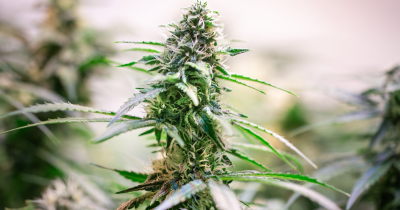By fypfeed in News On 14th August 2025
Scientists Warn Cannabis Cannabis now is five-fold more potent than it was a decade ago, and researchers believe that the risk to health are rising in the same way.
Cannabis Back in the Spotlight
A significant Canadian study has found alarming data regarding the explosive growth in the strength of cannabis — and the potential dangers associated with it.
The news comes as the former U.S. President Donald Trump contemplates reducing the status of cannabis to the Schedule I (the same classification that includes heroin as well as LSD) into Schedule III, where it could be acknowledged as less harmful, but still federally banned.




Legal But Risky
Although it is classified as a strict category the majority of U.S. states already allow marijuana for recreational or medical usage. In Canada the cannabis has been legalized fully on October 17 of this year under the Cannabis Act, making it an ideal location for cannabis research in real-world situations.Donald Trump is reconsidering the US position regarding cannabis – sort of (Getty Images)
Stronger Than Ever
In the beginning of 2000 the average for cannabis was 4.4% THC. Today, the majority of legal cannabis in Canada has more than 20 percent.
Co-author of the study Study co-author Dr. Nicholas Fabiano, MD of at the University of Ottawa, explained:
“Cannabis in the 2000s was not the same as it was in 2025. The amount of THC has risen by five times. This could be a major reason for the rising connection between cannabis with schizophrenia.”
Mental Health Risks
Psychosis Danger
The regular use of cannabis high in THC could trigger psychosis which can cause hallucinations and paranoia as well as the illusion of being.
The risk is highest for young people and those already dealing with mental health problems.The study finds a link between regular use of cannabis with increased mental health problems (Justin S. Sullivan/Getty Images)
Link to Schizophrenia
A large Ontario investigation comprising 9.8 million individuals discovered health problems related to cannabis closely associated with schizophrenia.
- ER patients with cannabis complications were 14 times more likely to develop schizophrenia-spectrum disorders within three years.
- For patients suffering from cannabis-induced psychosis the risk was 250 times greater.
The use of cannabis could increase the risk of developing schizophrenia (Mrs/Getty Images)
What Doctors Advise
First Step: Stop Using
The results of the research are clear the most efficient treatment is to completely stop smoking cannabis. In severe cases, it may be necessary to take antipsychotic medications to help stabilize the patient.Doctors may prescribe antipsychotic drugs to ease the symptoms (OSTILL/Getty Images)
TheTherapy That Helps
Quitting cannabis can be extremely challenging for many individuals, especially when they have developed a strong dependence over time. However, research and clinical experience consistently show that therapy can be highly effective in supporting users through this process. By providing structured guidance, professional insight, and emotional support, therapy helps individuals understand their habits and develop healthier coping mechanisms.
Motivational interviewing, for instance, is a technique often used in therapy to help users explore their personal reasons for wanting to change. This method encourages reflection, builds intrinsic motivation, and empowers individuals to make lasting commitments toward quitting.
Cognitive behavioral therapy (CBT), another widely used approach, equips individuals with practical strategies to resist cravings and prevent relapse. Through CBT, users learn to identify triggers, challenge harmful thought patterns, and replace old habits with healthier behaviors. Over time, these strategies can transform not only the individual’s relationship with cannabis but also their broader approach to managing stress, emotions, and daily challenges.
Therapy, therefore, is not just about stopping substance use; it can fundamentally improve mental well-being, resilience, and overall quality of life. As experts like Zoran Zeremski have highlighted, the combination of professional guidance and personal commitment can make recovery achievable and sustainable.
The Bigger Picture
As cannabis legalization continues to expand around the globe, more people are gaining access to the substance than ever before. While this has benefits such as regulated quality and increased personal freedom, experts are warning that the cannabis available today is significantly stronger than in previous decades.
Modern cannabis products often contain much higher levels of THC, the primary psychoactive compound, which can increase the risk of mental health complications, including anxiety, psychosis, and long-term cognitive effects. Researchers emphasize that despite broader acceptance and legal access, the health risks associated with high-potency cannabis cannot be ignored.
Public health officials urge both recreational and medical users to be informed, cautious, and responsible with their consumption. Education, therapy, and support systems are all crucial tools to mitigate risks and ensure that individuals can make safe choices while navigating a landscape where cannabis is more potent and widely available than ever before.
















